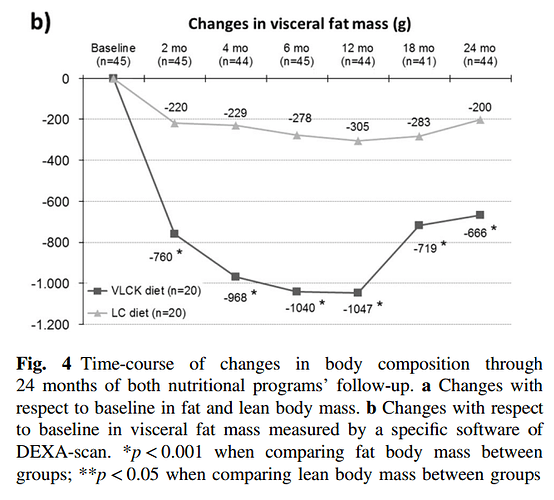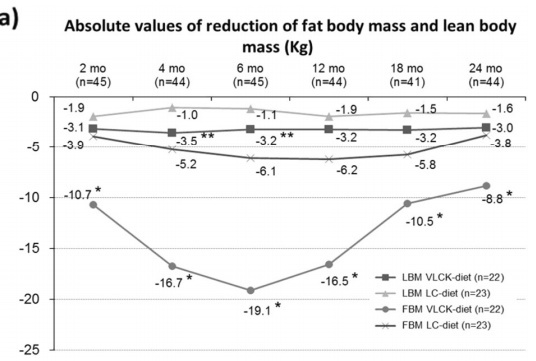If you want to know why people who are insulin resistant stall, you have to understand why they put on weight in the first place. The root cause is that they make slightly more insulin to the same dietary challenge (glucose, and alanine). We’re born that way. This starts off small but it compounds over decades, because chronic exposure to insulin increases insulin resistance. Exposure to our modern diet exposes us to high ranges of glucose, so that gives us a rocket booster to diabetes.
Our bodies are run not by a little man in our head with levers, but by millions of feedback loops all affecting each other. But we have some big ones we can focus on.
The simplest feedback loop I can think of for increasing insulin resistance, is when we have insulin and free fatty acids in our blood we make MORE insulin until the free fatty acids spigot is shut off. The spigot is our fat cells, when insulin is low they release energy, when high they sequester energy. So as out fat cells become incrementally more resistant, we make increasingly more insulin. Eventually fat cells are unable to sequester any more energy and you have the overflow problem where they are just dumping free fatty acids into our blood streams.
But that’s just supply side. If that were all there was to the story no-one would become super obese because once fat cells stopped sequestering energy you would burn it, and they would become more insulin sensitive - and you would cycle between the top and bottom of the overweight range.
There is also a demand side part of the story. Insulin inhibits the carnitine shuttle used to move long chain fats into the mitochondria to be oxidized. If Insulin is high, they pool in lipid droplets which drive insulin resistance in the peripheral cells (intramyocellular lipids), and they are slowly broken up in peroxisomes into MCTs that can perfuse the mitochondrial membrane - but in a process that generates significant peroxide (a very reactive oxygen species).
So what happens when you change the diet that is keeping insulin elevated. Well you are insulin resistant so you still make a LOT. But your fat cells are still ignoring that, and if you can make just enough to turn on your carnitine shuttle - then you are off to the races all those FFA’s being dumped into circulation by your broken fat cells you can burn as long as you keep insulin below the threshold that inhibits the carnitine shuttle.
The stall, when it happens is actually a good thing. It’s the return of insulin sensitivity to your fat cells. You still make high insulin, even when you eat nothing - so your now healthy fat cells are doing their job and sequestering energy.
To get down from that stall you have to lower insulin.
If at a stall you decide, Oh well I’ll just eat less that will do it … what your body will do is lower your metabolic rate and go looking for energy because your insulin is TOO high to release any from body fat.
What does your body do when it can’t get enough energy from fat, and you aren’t giving it any glucose? It burns protein.
So for people who are type 2 diabetic and stalled out, going on a calorie restricted diet will reduce your weight but it will slow your metabolism (so you feel like shit), you’ll burn protein for energy, and you’ll be hungry all the time. AND if you ever stop caloric restriction you will yo yo back up like a former Biggest loser contestant.
A better strategy is to adequately fuel your body from dietary fat, eat your maintenance amount of protein, reduce carbohydrates as much as you can and let TIME at a lower chronic level of insulin reduce your insulin resistance so you need to make less. And you can try some of the exercise, fasting and pharmaceutical strategies to reduce your insulin resistance.
In other words … Keep calm and Keto on.


 commercial diet study that went for 2 years. It didn’t find an 4% increase in LBM after 3 weeks or if it did I missed it. But it did find the 666g fat mass lost on the VLCK vs 200g on an LC diet.
commercial diet study that went for 2 years. It didn’t find an 4% increase in LBM after 3 weeks or if it did I missed it. But it did find the 666g fat mass lost on the VLCK vs 200g on an LC diet. after 2 months and only 10.7 kgs of fat mass
after 2 months and only 10.7 kgs of fat mass  according to the composition graph. So clearly short changing these subjects for calories in that time forced their bodies to recruit protein as an alternate substrate. That’s what having only 10g of fat in your low carb diet will do for you.
according to the composition graph. So clearly short changing these subjects for calories in that time forced their bodies to recruit protein as an alternate substrate. That’s what having only 10g of fat in your low carb diet will do for you.
 on the control (LC) arm. In the first 2 months as the subjects went from their calorically sufficient diet to a 10% deficit …
on the control (LC) arm. In the first 2 months as the subjects went from their calorically sufficient diet to a 10% deficit … ), and 1.9 kg lean mass (
), and 1.9 kg lean mass (  ). But then their losses of body fat plateaued out around 6 months despite a continual 10% deficit. And the Lean body mass loss increases.
). But then their losses of body fat plateaued out around 6 months despite a continual 10% deficit. And the Lean body mass loss increases.